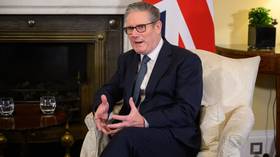Global financial organisations look to evolve
G8 finance ministers in Istanbul have agreed to give a bigger role to developing countries in the International Monetary Fund. But opinions are still divided over how to share influence at the World Bank.
The International Monetary Fund may become a global central bank with at least $1 trillion to support countries in crisis. That, at least, is the goal of its Managing Director, Dominique Strauss-Kahn, who said the organization has been given a new mandate to serve as global lender of last resort, while pointing to the need for funding for the World Bank.
“The question of the resources are solved for IMF at least for a while, and now the question which is at stake is to find enough resources for the world bank.”
But the IMF could also evolve in a different direction – as an arm of the Group of 20 industrialised and developing nations. Its twice-yearly meeting agreed a stronger voice for G20 countries in Fund decisions. Russian Finance Minister, Aleksey Kudrin, says it’s a step in the right direction
“It's a continuation of the G20 meeting. We talked about reforming the IMF – the key question was the increase in the share of the IMF capital for developing countries, as many think organizations like the IMF and World Bank represent only the interests of developed countries. But the developing markets which are a huge part of the global economy are not presented enough in top management and the capital of these institutions.”
The IMF gave a generally positive outlook for the world economy, forecasting growth next year of 3.1%. However it warned that rising unemployment and a weak banking sector could still threaten that recovery.
With that in mind, Russia may borrow, from the World Bank, between 2 and 4 billion dollars, and it is ready to make loans to smaller countries. Russian representatives held meetings with crisis-hit Serbia, Bulgaria, Ukraine and Iceland.
The agenda of the IMF and the World Bank in Istanbul reflects tension between the growing voice of developing nations – and the traditional role of global lenders. The head of the World Bank Robert Zoelick took a middle view – saying that as the US economy loses influence, the financial institutions may take on its leading role.











